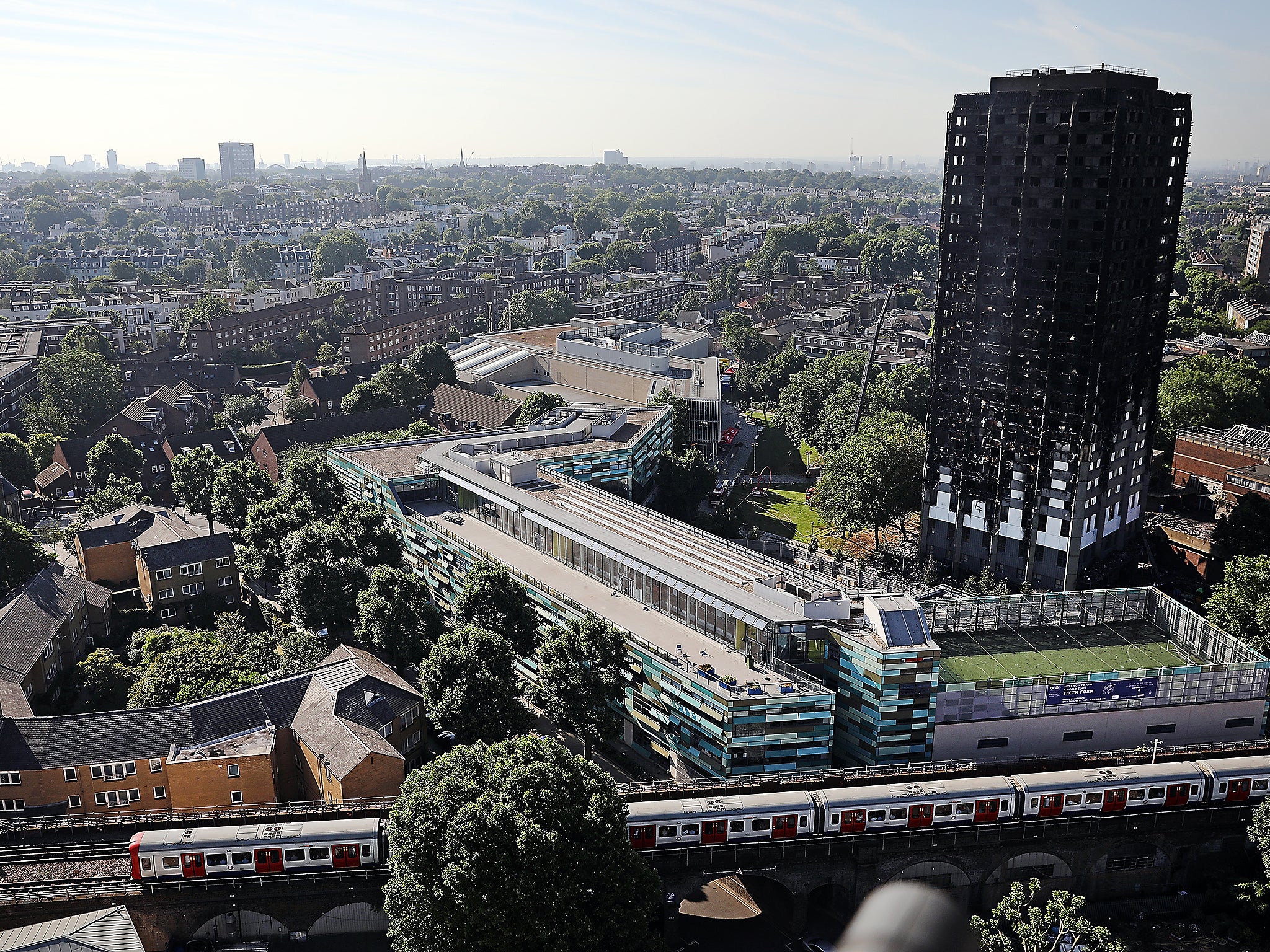Grenfell Tower's fireproof cladding was ‘downgraded to save £293,000’, show leaked documents
Email sent during tower's refurbishment demands 'good costs' for Conservative councillor

Your support helps us to tell the story
From reproductive rights to climate change to Big Tech, The Independent is on the ground when the story is developing. Whether it's investigating the financials of Elon Musk's pro-Trump PAC or producing our latest documentary, 'The A Word', which shines a light on the American women fighting for reproductive rights, we know how important it is to parse out the facts from the messaging.
At such a critical moment in US history, we need reporters on the ground. Your donation allows us to keep sending journalists to speak to both sides of the story.
The Independent is trusted by Americans across the entire political spectrum. And unlike many other quality news outlets, we choose not to lock Americans out of our reporting and analysis with paywalls. We believe quality journalism should be available to everyone, paid for by those who can afford it.
Your support makes all the difference.Pressure to keep costs down during the refurbishment of Grenfell Tower appears to have driven the decision to use cheaper cladding on the block, an investigation has revealed.
Leaked documents including an “urgent nudge email” from housing bosses suggest aluminium panels with a flammable core were selected for the west London tower in the place of a fireproof zinc material to save nearly £300,000 – with reportedly little discussion of possible implications for residents’ safety.
An estimated 80 people died in the devastating fire on 14 June that detectives believe was started by a fridge-freezer unit before spreading to the 24-storey building’s “combustible” cladding, which subsequently failed safety tests.
The email from Kensington and Chelsea tenant management organisation (TMO) urged construction consultants Artelia UK, who were managing the £8.6m project, to assure the Tory councillor in charge of the refurbishment that prices would be kept low, reported The Times.
“We need good costs for Cllr Feilding-Mellen and the planner tomorrow at 8.45am!" the email, sent on 16 July 2014, is alleged to have said.
A cost summary analysis from the same month also obtained by the newspaper appears to identify a saving of £293,368 by using “aluminium cladding in lieu of zinc cladding”.
Rock Feilding-Mellen, who is deputy leader of Kensington and Chelsea Borough Council, has been forced to relocate his family after reportedly receiving threats from angry residents outside his luxury £1.2million home.
The 38-year-old was said to be concerned for his safety after abusive posters and vandalism were seen outside his three-storey townhouse in north Kensington last weekend.
The Conservative council had a budget surplus of £274m, according to a draft account statement for this year describing the funds as “usable reserves”, and is said to have offered £100 rebates to the borough’s residents paying the top rate of council tax in 2014.
When the refurbishment project began in 2012 with the aim of improving the 1970s building’s insulation and making it more attractive, the use of fireproof zinc panels was proposed in a planning application submitted by architects Studio E, according to The Times.
But following a series of cost-cutting decisions, a revised planning application submitted two years later is said to require the aluminium cladding, which has a flammable plyethylene core, instead.
Minutes from an emergency residents’ meeting held on 17 March 2015 show that more than 100 people living in the block produced a long list of issues about the refurbishment.
The minutes detail anxieties about the way the firm Rydon was doing the work and mention the “concern that TMO/Rydon are using cheap materials” and “cutting corners” on workmanship. Other problems included “grave concerns at standard of works inside a number of residents’ properties”.
A spokesperson for Kensington council said Mr Fielding-Mellen had in fact increased the budget of the refurbishment project from £6.9m to £10.3m.
”Cllr Feilding-Mellen and the cabinet were willing to approve significant and repeated increases in the overall budget based on the advice received from KCTMO, which was responsible not only for specifying and delivering the project but also for ensuring the building met the necessary and current building regulations,” they said.
“Any requests by Cllr Feilding-Mellen and the housing department to justify the TMO's requests for increases to the budget would have been made in the spirit of ensuring that public funds were being well managed and could be justified. Safety would not have been compromised.“
Last night council officials adjourned a cabinet meeting after press were allowed to attend, claiming it would ”prejudice“ the forthcoming public inquiry.
The High Court earlier ruled that the council must let journalists attend the meeting – the first to be held by the local authority since the disaster – after reporters were initially told they were barred.
The decision by council leader Nicholas Paget-Brown, to postpone the meeting triggered an angry response including from opposition councillor Robert Atkinson, who demanded the cabinet's resignation.